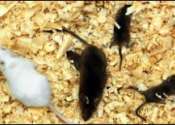Understanding sound direction estimation in monaural hearing
The ability to locate sounds in the surrounding environment is a remarkable feature of the human ear. Typically, people with good hearing use both ears to detect and interpret auditory cues.
Mar 14, 2023
0
0








